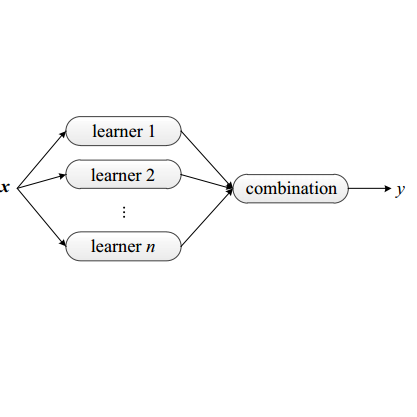人工智能 | CCF推荐期刊专刊信息4条
人工智能
Pattern Recognition
Call for Papers: Ensemble Deep Learning
全文截稿: 2019-02-15
影响因子: 3.962
CCF分类: B类
中科院JCR分区:
• 大类 : 工程技术 - 2区
• 小类 : 计算机:人工智能 - 2区
• 小类 : 工程:电子与电气 - 2区
网址: http://www.journals.elsevier.com/pattern-recognition/
Deep learning is now undisputed as the new de-facto method for solving a wide range of problems such as computer vision, speech recognition, natural language processing and reinforcement learning. The unifying idea behind such a vast success is the utilization of neural networks with many hidden layers, for the purposes of learning complex feature representations from raw data, rather than relying on handcrafted feature extraction methods. Ensemble learning, at the same time, has been widely employed to improve the performance of a single predictor. In the past decades we have witnessed remarkable progress in ensemble learning, starting from ensemble of simple models such as random forests to ensemble deep learning which dominates the ImageNet Large Scale Visual Recognition Challenges today.
The current capability gaps are huge. Indeed, increasing depth and width of networks and the emerging phenomenon of big dimensionality of data render the inadequacies of ensemble deep learning. There is thus a pressing demand for new scalable and high performing ensemble approaches that can cope with this explosion of network complexity and data dimensionality. Furthermore, in some resource-constrained scenarios such as portable/mobile/wearable devices which have limited computational capabilities and storage space, the demand for efficient and well-performing algorithms in handling large-scale data is rising. In such scenarios, real time performance is of utmost importance to users. Therefore, there is a growing need for ensemble deep learning that are efficient to compute, and yet exhibiting superior discriminability and robustness.
We believe that this special issue will offer a timely collection of research updates to benefit the researchers and practitioners working in both ensemble learning and deep learning. Topics of interest include but are not limited to:
- Fusion of Deep Networks
- Deep Multiple Kernel Learning
- Deep Ensemble for Feature Selection
- Deep Multimodal Learning
- Deep Ensemble Metric Learning
- Unsupervised/Self-supervised Deep Ensemble Learning
- Deep Ensemble Knowledge Distillation
- Deep Ensemble Model Compression
- Applications of any of the above methods in any domain
- Comparisons among ensemble deep learners, single deep learners, or shallow learners
人工智能
Engineering Applications of Artificial Intelligence
Special Issue on Emerging Issues and Applications of Type-2 Fuzzy Sets and Systems
全文截稿: 2019-03-15
影响因子: 2.819
CCF分类: C类
中科院JCR分区:
• 大类 : 工程技术 - 2区
• 小类 : 自动化与控制系统 - 3区
• 小类 : 计算机:人工智能 - 3区
• 小类 : 工程:电子与电气 - 2区
• 小类 : 工程:综合 - 2区
网址: http://www.journals.elsevier.com/engineering-applications-of-artificial-intelligence/
In 1965, Prof. L. Zadeh introduced the concept of Fuzzy Sets (FSs) to represent the uncertain system parameters. However, in many real-world systems, uncertainty appears due to multiple reasons. In such a scenario, uncertainty modelling capabilities of the Type 1 (T1) or traditional FSs are quite limited. Due to which, Zadeh himself brought the concept of higher order or Type-m FSs in 1975. However, for more than a decade, these types of FSs got very little attention from the scientific community. Interestingly, from 1990, researchers started investigating the T2 FSs, or more specifically the Interval Type-2 (IT2) FSs and successfully applied the same for realistic uncertainty modelling in a number of applications.
Very recently, a new research trend has been noticed, where researchers have shifted their focus from the IT2 FSs to the General Type 2 (GT2) FSs and exploring better results in many applications. This has further been motivated by some of Prof. J. M. Mendel´s recent works, where he has nicely shown that if proper care is taken during the designing phase, an IT2 Fuzzy Logic System (FLS) shall always produce better (or at least equal) performance than a T1 FLS. Similarly, a GT2 FLS has the capability to give better (or at least equal) performance than a IT2 FLS. Nevertheless, growth of research carried out on the T2 FSs and T2 FLSs are far less than the volume of research conducted on T1 FSs.
This warrants more and more research attention from the scientific community on this important topic, especially since everyday newer and newer systems are emerging across all the domains of science and engineering, e.g. social networks, big data analytics, cyber security, cyber-physical systems, cloud computing etc. Therefore, this special issue aims to introduce cutting edge research concepts o on T2 FSs and Systems and their applications in a number of emerging systems including (but not limited to) the following:
- T2 FS based uncertainty modelling in Cyber-Physical Systems
- Social Network Analysis under T2 Fuzzy Uncertainty
- T2 FLSs in Cyber Security
- Secure Communication
- T2 FS based uncertainty modelling in Big Data Analytics
- Multi-media Applications with Fuzzy Uncertainty
- CWW (Computing with words)
- T2 FSs for Image Processing
- T2 FSs in Evolutionary Optimization
- T2 FSs and T2 FLSs in Machine Learning
- T2 FSs and T2 FLSs Deep Learning
- T2 FLSs for Power Systems
- T2 FSs for Energy Optimization
- T2 FSs and T2 FLSs Green Computing
- T2 FS based uncertainty modelling Vehicle Routing Problem
- And other application areas with T2 FS based uncertainty modelling
人工智能
Knowledge-Based Systems
SPECIAL ISSUE ON: New Innovations in Machine Learning and Software Science (NEMLSS)
全文截稿: 2019-03-15
影响因子: 4.396
CCF分类: C类
中科院JCR分区:
• 大类 : 工程技术 - 2区
• 小类 : 计算机:人工智能 - 2区
网址: http://www.journals.elsevier.com/knowledge-based-systems/
Knowledge Engineering aims at turning the process of constructing Knowledge Based Systems (KBSs) from theory into intelligent application. This requires the analysis of actual problems and the development of appropriate methods, languages, and tools specialized for developing KBSs. Uncertainty is one aspect in decision making has been tackled in different research and project but still has not provided robust solutions that can be used in catastrophic decision making systems for example, or another systems needs more precise factorization to the uncertain requirement. Intelligence is related to how to apply knowledge indifferent spatial space models.
Current Artificial Intelligence involved in developing secure and robust software technologies for many aspects. However, recently data streams in multi-sensing and data in motion still considered as obstacles to in providing consistent decision making for real problems. This has created inherent needs to establish new innovations on integrating machine leaning into software systems making it more robust in handling real situations in decision making.
This special issue will expands best selected articles from the SOMET2018 (the 17th round of the International Conference on Intelligent Software Systems) held in Granada on September 2018) and also new and original contributions not submitted previously are welcome. The selected articles are based on novelty, and high quality technical contributions. The papers (extended revision) to be contributed in the NEMLESS special issue must have more than 70% new material compared with the conference version. Also, submitted articles should be original and not submitted elsewhere. Moreover, we encourage submittingOriginal Software Publicationtype articles.
The topics of the special issue:
- End-user programming environment,
- Semi-supervised learning, transfer learning and domain adaptation.
- Deep learning technologies in advanced software systems
- Granular computation in software systems
- User-centered Adoption-Centric Reengineering techniques.
- Ontology, cognitive models and philosophical aspects on software design.
- Medical Informatics, Software methods and application for biomedicine.
- Artificial Intelligence Techniques on Software Engineering.
- Intelligent decision support systems and consensus
- Big data software and applications in smart energy, smart business and smart cities.
- And other disciplines that are selected from the SOMET2018,
人工智能
International Journal of Approximate Reasoning
Special issue on “Imprecise Probabilities, logic and Rationality”
全文截稿: 2019-06-01
影响因子: 1.766
CCF分类: B类
中科院JCR分区:
• 大类 : 工程技术 - 2区
• 小类 : 计算机:人工智能 - 2区
网址: http://www.journals.elsevier.com/international-journal-of-approximate-reasoning/
The term “imprecise probability” (IP for short) usually refers to a family of models that provide a description of phenomena for which incomplete or imprecise information has been advanced, overcoming the limitations of traditional models of uncertainty based on precise probabilities. The basic idea of IP models is to extend the standard theory of precise probabilities by considering sets of traditional models. From this perspective the uncertainty (beliefs) of an agent about the possible states of the world is for instance modelled by sets of probabilities rather than a single one. Extensions include, among others, lower and upper previsions, belief functions, sets of desirable gambles and partial preference orderings.
IP is strongly linked with another framework where to express, study and reason on forms of imprecision and incompleteness: logic. Indeed, on the one hand standard logic methodologies have been applied to characterise and study IP notions such as coherence and models in terms of lower and upper probabilities/expectations. On the other hand concepts stemming from the IP tradition have been used to formulate appropriate semantics for statistical relational languages (e.g. by enabling to go beyond limitations such as cyclicity in probabilistic logic programs), whereas viewing IP as an abstract logic structure has lead to its application to domains such as for instance quantum mechanics, sum-of-square optimisation and classical logic itself.
This Special Issue intends to contribute to the state-of-the-art of the interactions and connections between imprecise probabilities and logic, and more generally with formal theories of rationality, the hope being that this cross-disciplinary view will lead to new exciting perspectives for both communities and related areas.
Topics of interests include but are not limited to the following:
IP and (modal/epistemic/dependence/probabilistic/possibilistic…) logic
IP and game/decision theory
IP and formal epistemology/deductive sciences
IP and StarAI
IP and coalgebra
applications of logic and formal languages to IP
applications of IP to logic
Logical, algebraic, categorical foundations of IP
下载Call4Papers App,获取更多详细内容!


登录查看更多
相关内容
Arxiv
59+阅读 · 2020年1月20日
Arxiv
78+阅读 · 2019年11月10日




